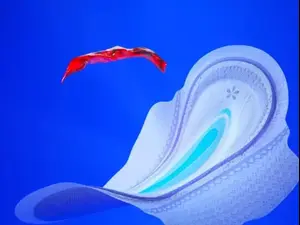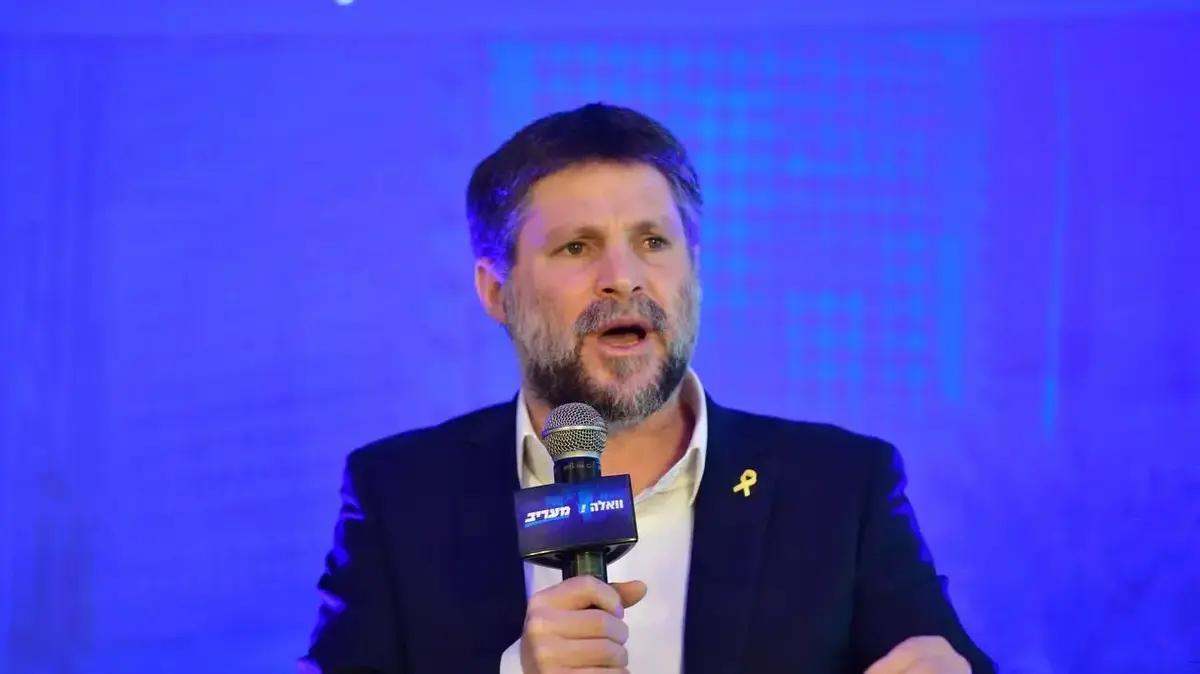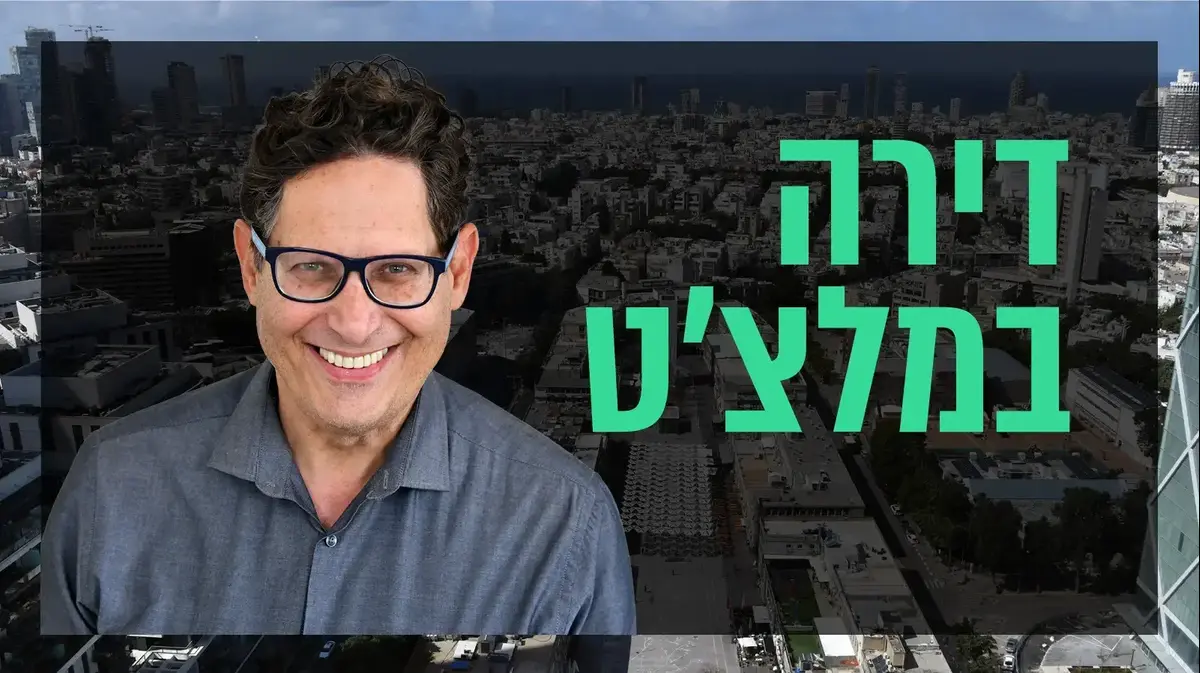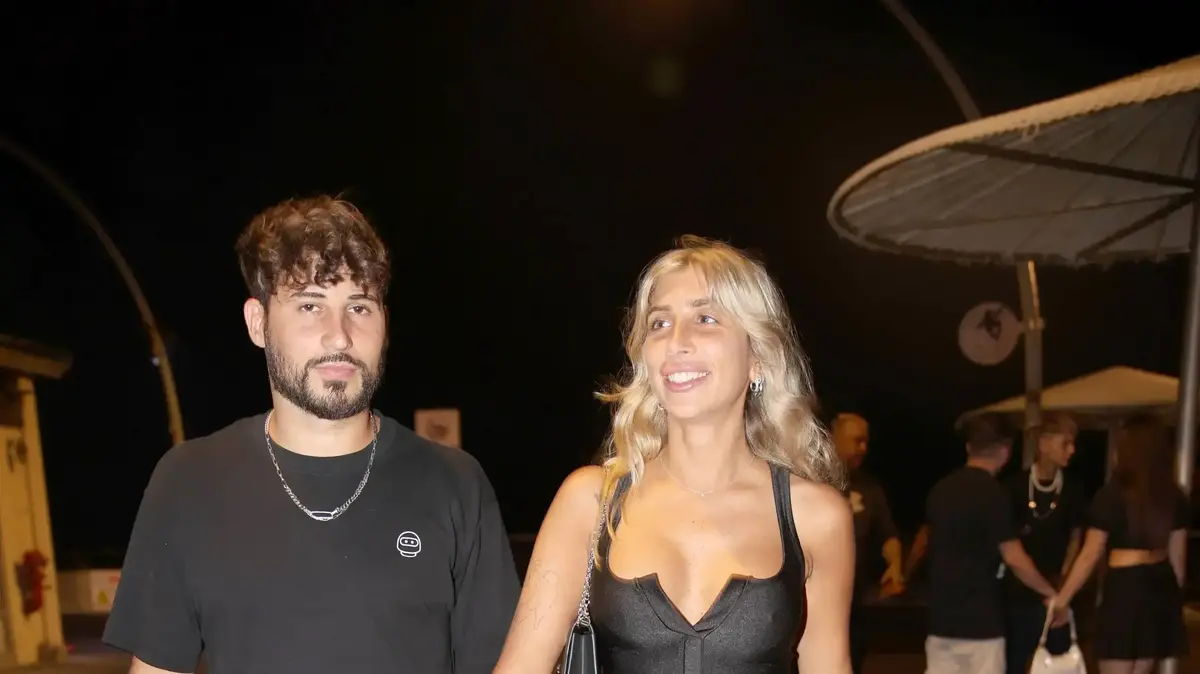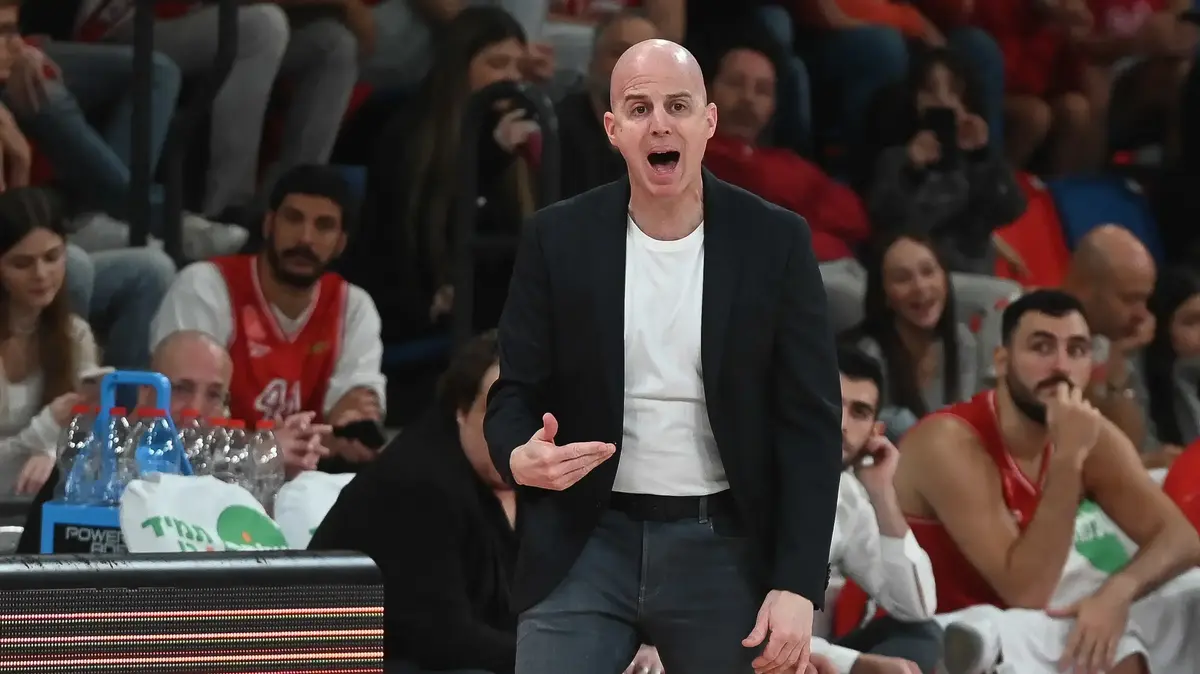Business
Career and higher education
"Dissatisfaction with the system finally decided"
One was a neurosurgeon and became a lawyer, another left clinical diagnoses in favor of Big Data and the third took advantage of the knowledge in the profession and set up a venture capital fund.
The disappointment from the system, the mother's resistance and the "dream and broke".
Three doctors tell why they left the field and moved into the business world
Tags
Doctors
David Rosenthal
Thursday, February 25, 2021, 12:00 p.m.
Share on Facebook
Share on WhatsApp
Share on general
Share on general
Share on Twitter
Share on Email
0 comments
Ichilov Hospital launches vaccination campaign against Corona ...
Always Platinum Bandage
Edelstein: Workers in places with an audience will have to get vaccinated or ...
Big complexes were opened using the takeaway method, contrary to the instructions, ...
Effective water desalination angle
First weekend without closure: Tens of thousands in nature reserves, ...
Street shops, markets and malls have opened: "Hope ...
College College of Management Campaign
Nachman Ash, Yuli Edelstein, Kfir Suissa
Naamat's campaign with Miri concludes on violence against women
New Zealand has announced a three-day closure in Auckland ...
In the video: Hundreds of interns protest against demand for shorter shifts (Edit: Nir Chen)
On March 19, 2020, tens of thousands of Israelis went out to the balconies at a coordinated time and applauded in a nationwide demonstration of support for physicians and treating staff working around the clock at the risk of their lives, to save Corona patients.
The corona crisis has put doctors at the forefront, and for the first time in years has led to collective appreciation and appreciation in them and their work.
But what if we were late for the train?
There are many doctors who did not 'hold on' until they recognized their vitality and retired from the world of medicine even earlier.
Here the question arises, what makes a doctor who has spent about a decade of his life studying medicine, internship and specialization and built a name and reputation as a specialist doctor, leave the field and look for another profession?
More on Walla!
NEWS
The star from Spain: a family paella
Avi Bitton
To the full article
Choose the area of personal injury, and not easily.
Adv. Avi Rubinstein (Photo: Yachz)
Dr. Avi Rubinstein, now Adv. Avi Rubinstein, says that the reason for his decision to retire from the world of medicine lies in the medical system.
"Dissatisfaction with the system, the way things are done, is what ultimately decided," he says, "when you return from a long training course in North America - where each specialist decides for himself how to treat, whether to operate on the patient or avoid surgery, etc., and here is a manager "A department that decides for you, very quickly there are frictions and explosions. Then the question arises whether to continue in the profession, grumble and aspire to be the manager or develop independence for yourself. I decided to change professions because you only live once."
Dr. Rubinstein gave his all to the medical system. He worked as a nurse at Hadassah Hospital while studying medicine, specializing in neurosurgery and working for a decade as a specialist in brain surgery. Still, he decided to leave the profession and move into the field of law. , While working full-time in a hospital as a neurosurgeon plus night and holiday bookshelves, but with the decision to change professions, a referral to a lawyer was natural.
I chose, not easily, to engage in the field of personal injury from accidents and medical malpractice as this is the option that was appropriate due to the huge advantage that a physician has in this area of expertise of law.
If I had a father or a contractor brother I would probably be in a different field of law. "
How hard is it to give up the world of medicine?
" It is not easy to leave the position of doctor, mainly due to the huge investment required to get there.
Seven years of study and then more years of internship and internship and that's just to start working.
It takes another few years to create a name and reputation for yourself, to progress and develop in the field.
At the same time, I have deep sorrow for the 'abandonment' of patients who need, in all modesty, quality people. "
What does professional retraining involve?
"While I was doing the vocational retraining at the same time the task was to raise four small children. You leave a job on a regular basis in a hospital and go on an adventure. Interesting as it may be, it involves a lot of uncertainty, both emotionally and of course financially."
How did the family members make your decision?
"They did not really like my 'wisdom' to leave. My mother, who was the first head nurse in Tel Hashomer, almost 'got into trouble' and told me that I was leaving a high human position for lentil stew. The image of public lawyers was immediately linked to money. But because I am somewhat impulsive and stubborn, There was no one to talk to. "
What is the emotional process that people go through when they make a professional change?
"A complex question. As a neurosurgeon you sometimes make fates for life with or without disability or God forbid death. When you come out of a successful head or spine surgery you inflate your chest and are happy as if someone will match you. Even when you finish on the good side a lawsuit representing an injured person feels Similar.
"In medical malpractice lawsuits, in order to receive compensation the court requires you to prove guilt of the treating medical staff, who in most cases did not intend to harm the patient.
Although we do not sue the doctor personally and do not mention his name, it does you no good.
Sometimes even a good doctor makes a mistake that could have been avoided and caused damage, you have no choice and you get vaccinated over time against the 'unpleasant' disease since you are representing a client.
Of course with fellow doctors or those I have worked with in general I prefer not to get into them. "
Are you happy with the decision in the end?
" I am mostly satisfied with the independence I have at work which is an important value.
"Overall, I really enjoy my work and see it as a mission and a blessing, especially in circumstances where lessons have been learned for the benefit of the patient's safety."
Moved to Big Data.
Prof. Yuval Shachar (Photo: Yachz)
Prof. Yuval Shachar, Head of the Research Center for Medical Information Systems, Department of Software and Information Systems Engineering at Ben Gurion University, is a Big Data scientist and one of the world's most senior figures in the study of artificial intelligence in medicine.
But before fulfilling his childhood dream of engaging in data and computing he was a doctor.
"I studied for seven years Medicine and did an internship after receiving the degree of Doctor of Medicine, and then I left the world of clinical medicine and I started studying the field of computer science I dreamed about forever," he says.
Why, then, did you study medicine in the first place?
"Everyone who knew I knew I loved math.
I started studying medicine at the age of 17 and also enrolled in math studies at the same time.
At that time I did not study computer science and I could not work in the field, I could not even explain to my father what can be done with computers. "
What did your parents say about not continuing with medicine?
" My mother took many years to realize that I just love math and computer science more.
At first she was a little sorry, like any Jewish mother, that her son would not be a doctor.
It took my parents a while to realize that I was completely serious about computing, and although medicine has always been of great interest to me, it did not interest me as much as computer science, and I realized that I could help people by much more research than through individual therapy.
"From the subject of brain research that interested me very much, and the desire to understand, on a biochemical basis, human behavior, I came to research in artificial intelligence. That is why I came as a medical student to Prof. Moshe Abels at Hadassah, whose laboratory did wonderful things in memory research. Prof. Abels "He was the one who convinced me to finish medical school. He explained to me that if I had a doctorate in medicine in addition to a doctorate in science, it would be easier for me later to receive research grants in the field of medicine."
When did you start studying computer science?
"I completed seven years of medicine, did an internship at Soroka and took advantage of the time to prepare for the final exams in medicine in Jerusalem, to study mathematics and computer science at Ben Gurion University, and enrolled in one of the first courses in artificial intelligence.
"
On my own initiative, I approached Prof. Yehuda Danon, who was then the commander of the Medical Corps, and suggested that I establish a computer generation in the Medical Corps and develop a computerized system that combines artificial intelligence to regulate casualties in an emergency.
To my delight, he agreed, and appointed me head of the department.
There were not even computers then.
At the end of the section it became an information industry.
"At the same time I started completing my master's degree in computer science at Bar Ilan. I received a Fulbright scholarship and was accepted to Yale for a master's degree in robotics and artificial intelligence. "I stayed there at the end of ten years, as a full-time faculty member."
And your doctorate served as the basis for all the work you do today?
"Absolutely. In my PhD I actually developed a new method for analyzing large amounts of medical information from various sources, over time, to predict what is expected of a patient, and to support diagnosis and treatment. Following my PhD, Stanford University presented me with the Young National Institutes Young Researcher Award. With a fairly large monetary prize that will be channeled for research purposes. "
In recent years, Prof. Shachar, in collaboration with Prof. Moore Peleg of the University of Haifa, has developed a system for the automated remote treatment of chronic patients based on developments in his laboratory at Ben-Gurion University, which was operated in an extensive clinical trial in Europe.
"Parts of it have also been successfully tried in Israel and the United States. The system will change the world of chronic disease management through research-based protocols and guidelines for the treatment of patients."
From pediatrician to CEO of venture capital fund (Photo: PR)
And there are also doctors who have not completely abandoned clinical care, but have significantly expanded their activities in other areas.
One of them is Dr. Yuval Bloch, a pediatrician by profession who currently serves as CEO of the Infinity Medical IMED venture capital fund).
For about a decade, Dr. Bloch has served in a variety of management positions in the public and private health systems and about a year ago was a member of the entrepreneur Amir Gal Or, for the establishment of Ichilov Inonation - a consulting company for medical ventures, hospitals and the establishment of international health services. A public partnership traded on the Israel Stock Exchange and investing in companies in the field of digital medicine.
Your work as a pediatrician has been significantly reduced
.
But not completely gone.
Throughout the years I have made sure to keep in touch with clinical practice.
Today I treat children in a community clinic for only about five hours a week.
The rest of the time I work as the fund's CEO.
How did you come from the position of physician to manage a venture capital fund?
"More than a decade ago, I decided to turn to management and did an internship in medical administration. I served as medical director of medical centers and took the clinical treatment out of focus."
I see my current role as another developmental stage in the business and management world.
Why did you choose this?
"As a doctor you encounter a lot of limitations in your functioning: lack of resources, limitations coming from above, from management, who do not always understand their source, and these create a sense of frustration that you are unable to do your job freely and fully. I thought if I was a food manager more influence way Where the medical staff gives care to the patients. "
And did you succeed?
"It's a 'dream and a break', I was partially successful. It dawned on me that as you go up the management avenue and the decision-making ladder you realize there are a lot of cross-cutting considerations that are not always consistent with the individual case. But I want to believe in every decision I made as a manager. My source as a doctor and the decisions were made with the best interests of the caregivers in mind.
"Today I am sure that there should be medical professionals at all levels of decision making, because the decisions we make in the health system are not only economic and logistical, at the end of every decision there is also medical consideration. Experienced people will also be integrated into the management positions in hospitals and health systems. "
How do you harness your knowledge and experience as a doctor in decision-making in the companies in which you invest?
" The angle I bring is the point of view of the end customer.
When I examine a product I look at it through the eyes of the user.
Sometimes we meet companies that make a great impression but I do not find any added value in their product and sometimes we see a product that looks less attractive but as a doctor I know to recognize its value.
"In the world of investments, what the investor is looking for it to minimize the risks and maximize profits by correctly identifying a product with real market we can focus our portfolio companies with a higher chance of success."
What are your tips for people who want to make a change?
"The decision to leave The medical profession is very difficult unlike many other professions. Anyone who disconnects from clinical practice for a period of two to three years will find it difficult to return because the world is changing - data, technology, protocols, so my recommendation, as long as you are undecided or unsure, stay in touch with the clinical world. "I do it to this day and I think it makes me not only a good doctor but also a better investor."
Share on Facebook
Share on WhatsApp
Share on general
Share on general
Share on Twitter
Share on Email
0 comments

